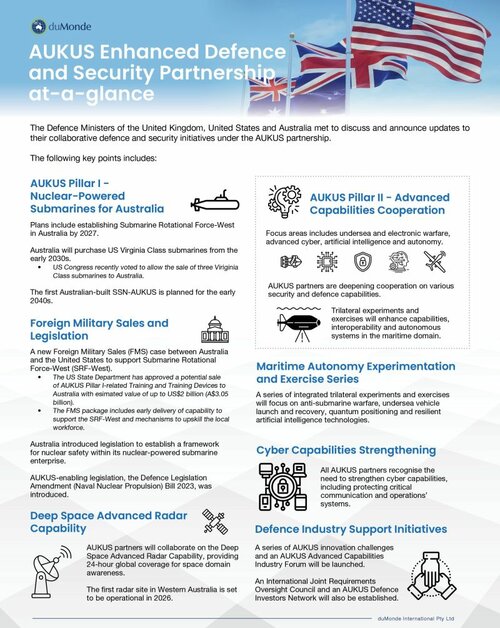Dubbed by some as
ANZUS 2.0, AUKUS is a trilateral agreement, but one that notably excludes New Zealand. With the UK’s inclusion instead, this agreement shifts the ANZUS Treaty’s Pacific Ocean focus to one that encompasses the Indo-Pacific and Atlantic Oceans too. It is an arrangement with global reach and profound, long-term implications.
There is much to unpack from this far-reaching announcement. It was only known publicly that a major announcement was coming less than 24 hours beforehand. In the slick promotional video that preceded remarks by Australian Prime Minister Scott Morrison, UK Prime Minister Boris Johnson and finally US President Joe Biden, the fact that the three nations are democracies was touted as a defining and unifying feature.
Yet the publics of the three nations were kept in the dark about what was afoot, and were instead presented a fait d’accompli. “AUKUS is born”, Morrison declared. Few knew it was even in gestation.
The secrecy surrounding AUKUS is troubling given its significance, especially for Australia. These stakes were clearly demarcated in today’s White House
press briefing ahead of the formal leaders’ announcement. AUKUS in its scope and aims:
- binds decisively Australia to the United States and Great Britain for generations.
To further underscore the significance for Australia, the US spokesperson described AUKUS as:
- the biggest strategic step Australia has taken in generations.
The most significant component of AUKUS announced so far is that
Australia will acquire nuclear-powered submarines. The US and the UK have shared this nuclear technology in an arrangement dating back to 1958.















